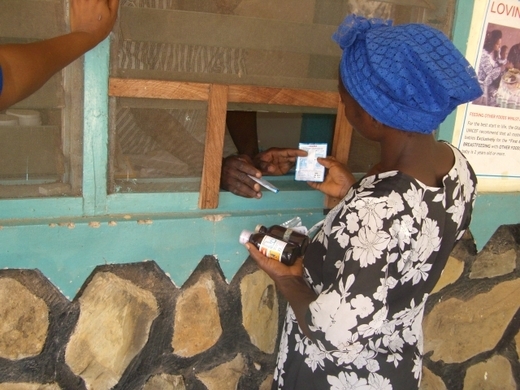This article is part of the network’s archive of useful research information. This article is closed to new comments due to inactivity. We welcome new content which can be done by submitting an article for review or take part in discussions in an open topic or submit a blog post to take your discussions online.

Although there is now a good research pipeline of antimalarial drugs in response to the rapid spread of drug resistant malaria, there is very little evidence on how these drugs should best be deployed. The ACT Consortium is a global research partnership of a number of eminent public health and academic institutions in Africa, Asia, Europe and the United States where our projects' Principal Investigators are based. Research focuses around four major themes relating to artemisinin-based combination therapies (ACTs), the first-line treatment recommended by the World Health Organisation for malaria - in Africa and Asia: targeting, access, quality and safety.
Including safety as a theme was important as, despite the wide scale use of ACTs, little is known about their long-term effects and their use in vulnerable populations, such as those co-infected with HIV. Moreover, it is clear that there is a need to work towards the pooling of safety data from multiple studies to understand uncommon adverse drug reactions that may not be detected by individual studies.
To address these and related questions the ACT Consortium conducted a broad range of studies:
• Primary research of the effect of repeated exposures of ACTs on long term safety endpoints and interactions between ACTs and antiretrovirals.
• Qualitative research on trial participants' perceptions of being treated with both anti-malarial and antiretroviral medicines and their experiences of being in a clinical trial.
• Participatory research to design adverse event forms for use by clinicians and non-clinicians.
• Mixed-method research to investigate how participant-reported safety data are obtained.
• A global survey of safety data collection methods.
• The ACT Consortium also conducted a host of activities relating the quality of antimalarial drugs
Outputs from this comprehensive approach to moving the field of antimalarial pharmacovigilance forward include journal publications, a manual and associated forms for the collection of adverse events, and a recorded webinar. See the links on the ACT Consortium resources page.
In addition, a web-based Drug Safety Repository established to capture adverse events from ACT Consortium studies is now available for use by researchers outside of the ACT Consortium choosing to share their data. Thus, antimalarial safety data from a variety of sources may now be collated within a secure, access-controlled, regulatory-compliant database to identify the incidence of adverse reactions and look for new signals of potential harms. Moreover this framework is being explored such that drug safety surveillance may be extended to other therapy areas.
To read more about other activities within the ACT Consortium, click here